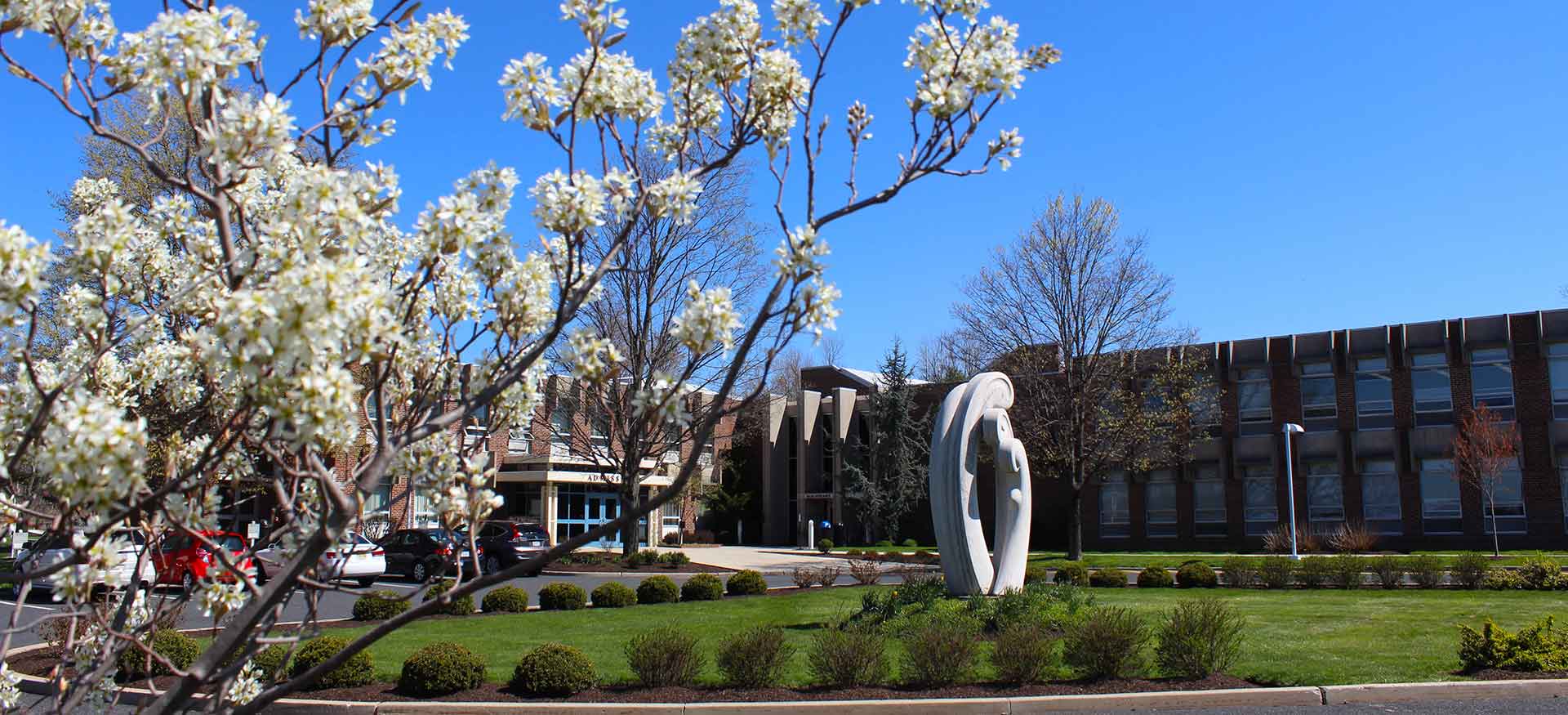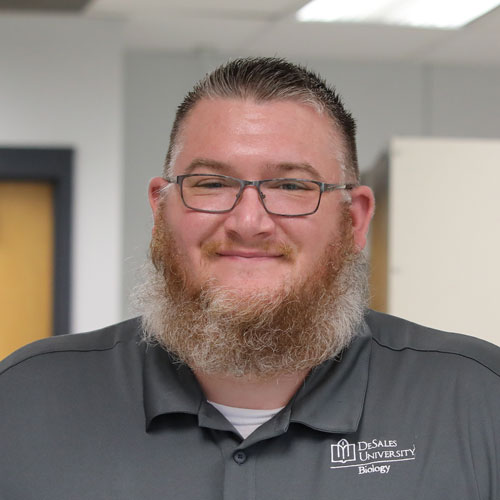


Position: Provost Fellow for Faculty; Chair Dept of Biology; Associate Professor of Biology; Department of Biology
Department: College of Sciences
Phone: 610-282-1100, x1891
Office: 131 Hurd Science Center
Dr. Joshua Slee received his BS in Biotechnology with a minor in chemistry and his MS in Biotechnology from Marywood University in Scranton, PA. For his master's research, he studied exercise-induced asthma and the effect of air pollution on lung function. He then earned his Ph.D. in Cell and Molecular Biology from Lehigh University, where he helped discover a receptor for heparin and investigated the anti-inflammatory roles of heparin and shear stress in the vasculature with implications for cardiovascular disease. In addition, Dr. Slee completed a postdoctoral fellowship at The Children's Hospital of Philadelphia (The University of Pennsylvania) where he explored the use of CD47, a marker "self" recognition to the immune system, to promote the biocompatibility of medical devices. Having been involved in the study of inflammation across different body systems, his primary area of interest is inflammation and the body's cellular responses to it. His lab utilizes cell and molecular biology techniques to understand how vascular cells transmit and respond to inflammatory and anti-inflammatory signals from their environment. His work has been presented at national meetings and published in a variety of peer-reviewed journals.
Dr. Slee has a passion for education and mentoring students. His students have participated in several of his research projects, with many of them presenting their work at conferences and co-authoring manuscripts. He has mentored students from Philadelphia charter schools and judged science fairs at schools in both Philadelphia and the Lehigh Valley. Along with his research, Dr. Slee is interested in developing Course-Based Undergraduate Research Experiences (CUREs) where undergraduate students perform authentic research within a traditional laboratory course. The CUREs that have been developed and performed at DeSales have been published in peer-reviewed journals.
At DeSales, he routinely teaches Intro. to Cell Culture, Cell Biology, Immunology, and Designer Genes in the Department of Biology. Dr. Slee resides in the Lehigh Valley with his wife and son. When he is not teaching and conducting research, he enjoys kayaking, traveling, cooking, and family trips to Dorney Park. He is an active member of Notre Dame of Bethlehem Parish and a member of the Knights of Columbus Trinity Council 313 and Assembly 931. Dr. Slee is a member of the American Society of Cell Biology, the American Society for Cellular and Molecular Biology, and the Lehigh Valley Molecular and Cell Biology Society, which he co-founded.
Shivok K and Slee JB. Alleviating biomaterial rejection using THP-1 cell adhesion to polyethylene glycol coated polyurethane. BIOS (2021).
McLaughlin JS, Patel M, and Slee JB. A CURE Using Cell Culture-Based Research Enhances Career-Ready Skills in Undergraduates. Scholarship and Practice of Undergraduate Research. Winter 2020. 4(2):1-13. doi: 10.18833/spur/4/2/1.
Slee JB and McLaughlin JS. Making it Stick: A CURE Designed to Introduce Students to the Scientific Process and the Host Response to Foreign Materials. BAMBed 19 April 2019 https://doi.org/10.1002/bmb.21248.
*Goudsouzian LK, McLaughlin J, *Slee JB. Using Yeast to Make Scientists: A Six-Week Student-Driven Research Project for the Cell Biology Laboratory – CourseSource. https://doi.org/10.24918/cs.2017.4 (2017).
* Contributed equally to the manuscript
Farwell SLNF, Li Y, Slee JB, Lowe-Krentz LJ. Using a GFP-tagged TMEM184A Construct for Confirmation of Heparin Receptor Identity. J Vis Exp (2017) (120), e55053, doi:10.3791/55053.
Slee JB, Fishbein I, Alferiev IS, Levy RJ, Stachelek SJ. Enhanced biocompatibility of CD47-functionalized stents. Biomaterials. (2016) http://dx.doi.org/10.1016/j.biomaterials.2016.02.008.
Kanyi D, Farwell SLN, Hamel M, Slee JB, Miller EA, Cipolle MD, Lowe-Krentz LJ. Heparin Decreases in TNFα;-Induced Endothelial Stress Responses Require Transmembrane Protein 184A and Induction of Dual Specificity Phosphatase-1. J Biol Chem. (2016) Jan 14. pii: jbc.M115.681288.
*Pugh R, *Slee JB, Farwell SLN, Barthol T, Li Y, Pavio M, Patton WA, Lowe-Krentz LJ. Transmembrane protein 184A is a receptor required for vascular smooth muscle cell responses to heparin. J Biol Chem. (2016) Jan 14. pii: jbc.M115.681122.
* Co-first authors